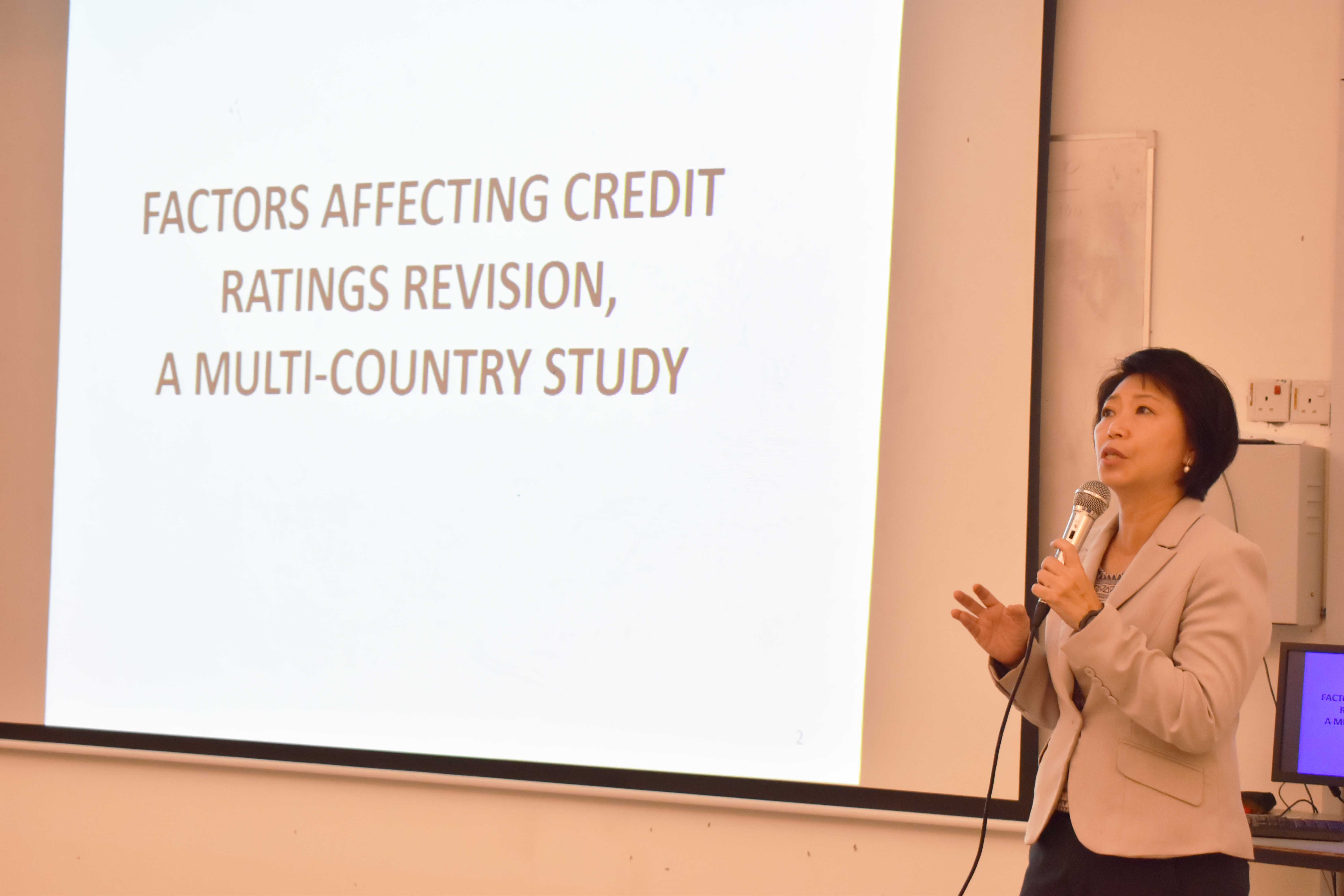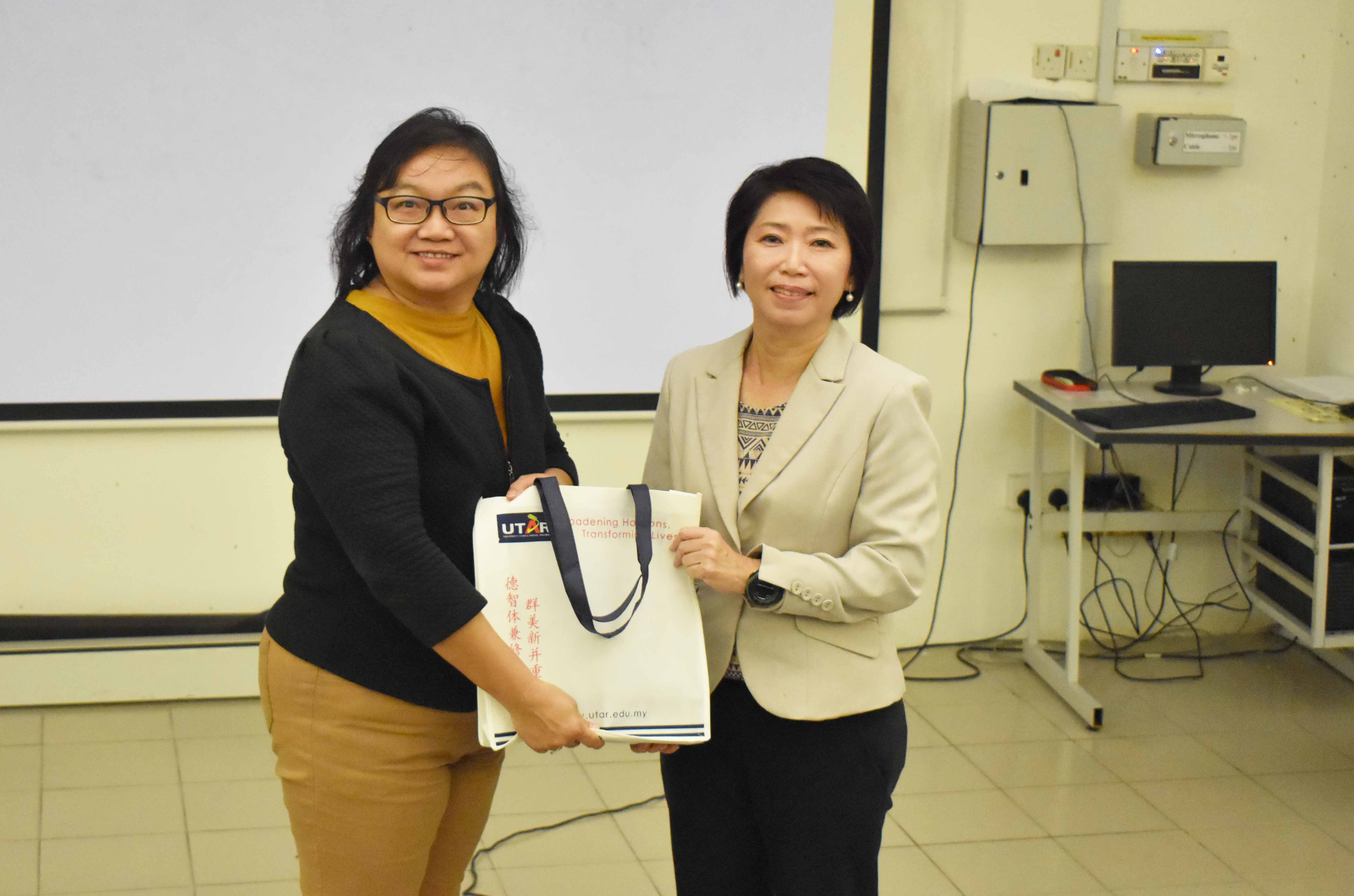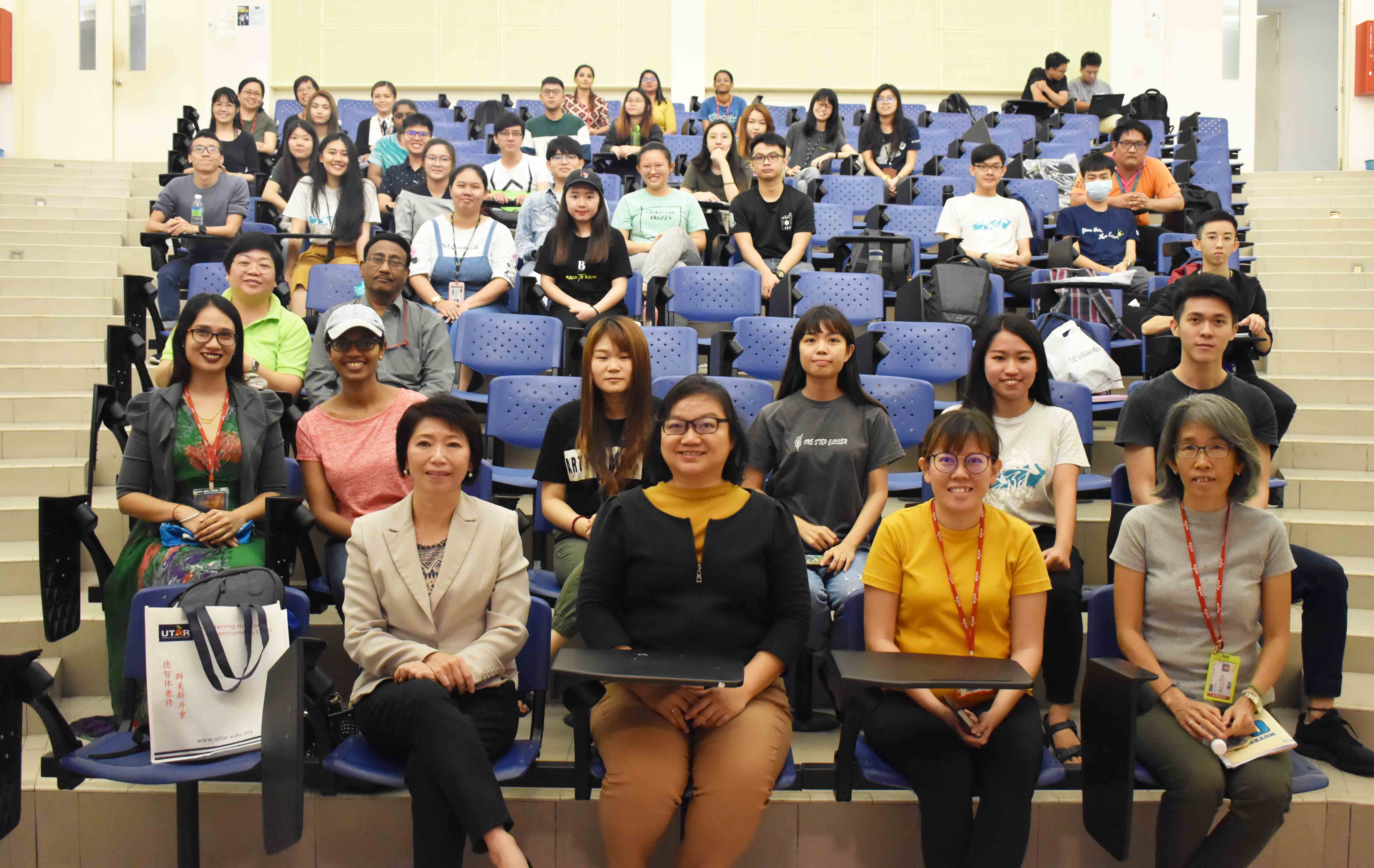
The Centre for Accounting, Banking and Finance (CABF) parked under the Faculty of Business and Finance (FBF) organised a professional and research talk titled “Factors Affecting Credit Rating Revisions” on 13 August 2019 at UTAR Kampar Campus.
The talk was delivered by Dr Angeline Ng Siew Huan. Dr Ng is currently working with a local based Saudi Bank in Malaysia as the Senior Vice President. Prior to this, she was attached with J.P. Morgan, a top investment U.S. bank.
Present at the talk were FBF Dean Dr Au Yong Hui Nee, Head of Department of Finance Kuah Yoke Chin, Head of Department of Commerce and Accountancy Sonia Johanthan, Chairperson of CABF Dr Krishna Moorthy Manicka Nadar and FBF students and lecturers.

Dr Angeline introducing the factors affecting credit ratings to the audience
Dr Ng opened her talk on the importance of credit ratings for borrowers to obtain loans. She explained that good credit ratings allow governments and borrowers to easily borrow money from financial institutions or public debt markets. However, since the collapse of Enron in 2001 and then Lehman Brothers in 2008, credit-rating agencies have come under scrutiny. In both cases, Moody’s Corporation gave investment grade ratings just days before the respective entities filed for bankruptcy.
Dr Ng defined credit rating as a rating assigned by a credit rating agency on the creditworthiness of the issuer. She said, “Credit-rating agencies thus provide investors with vital assessments of companies’ ability to service their debts. According to the Wall Street Journal, 30,000 ratings within a $3trillion structured securities were issued between 2008 and 2019. The top three credit rating agencies considered as superpowers of the global rating industry consist of Moody’s and S&P each controlling 40 per cent of the credit rating industry with Fisch at third place controlling 15 per cent.”
Dr Ng observed a disturbing trend where credit rating agencies were giving increasingly optimistic appraisals as they fight for market share in the booming debt-securities market. She added, “These inflated ratings come about when banks approach several rating agencies until they found one that gave the best rating. The outcome of such “shopping spree” inflated ratings at the detriment of investors.”

Dr Au Yong (left) presenting the souvenir to Dr Ng
On the homefront, she cited that the impact of Moody’s credit rating withdrawal for 1MDB has affected Malaysia’s rating as a whole and this can be seen with the recent downgrade of Petronas ratings from A1 to A2. For comparison purposes, Malaysia’s current rating is A3, while Singapore’s rating is AAA. Dr Ng emphasised that Malaysia has to maintain a good credit rating to avoid excess interest rates on borrowings.
Finally, Dr Ng also briefed the audience on her research where the Ordered Probit Methodology was used to analyse the determinants for individual rating change. Findings showed that of eight variables studied, profitability, interest, coverage ratio and leverage were significant in determining the credit ratings.

Front row, from left: Dr Ng and Dr Au Yong with participating students and academics
The interesting talk was followed by a Q&A session and thereafter a souvenir was presented to Dr Ng by Dr Au Yong. The talk ended with a group photography session.
© 2019 UNIVERSITI TUNKU ABDUL RAHMAN DU012(A).
Wholly owned by UTAR Education Foundation Co. No. 578227-M LEGAL STATEMENT TERM OF USAGE PRIVACY NOTICE